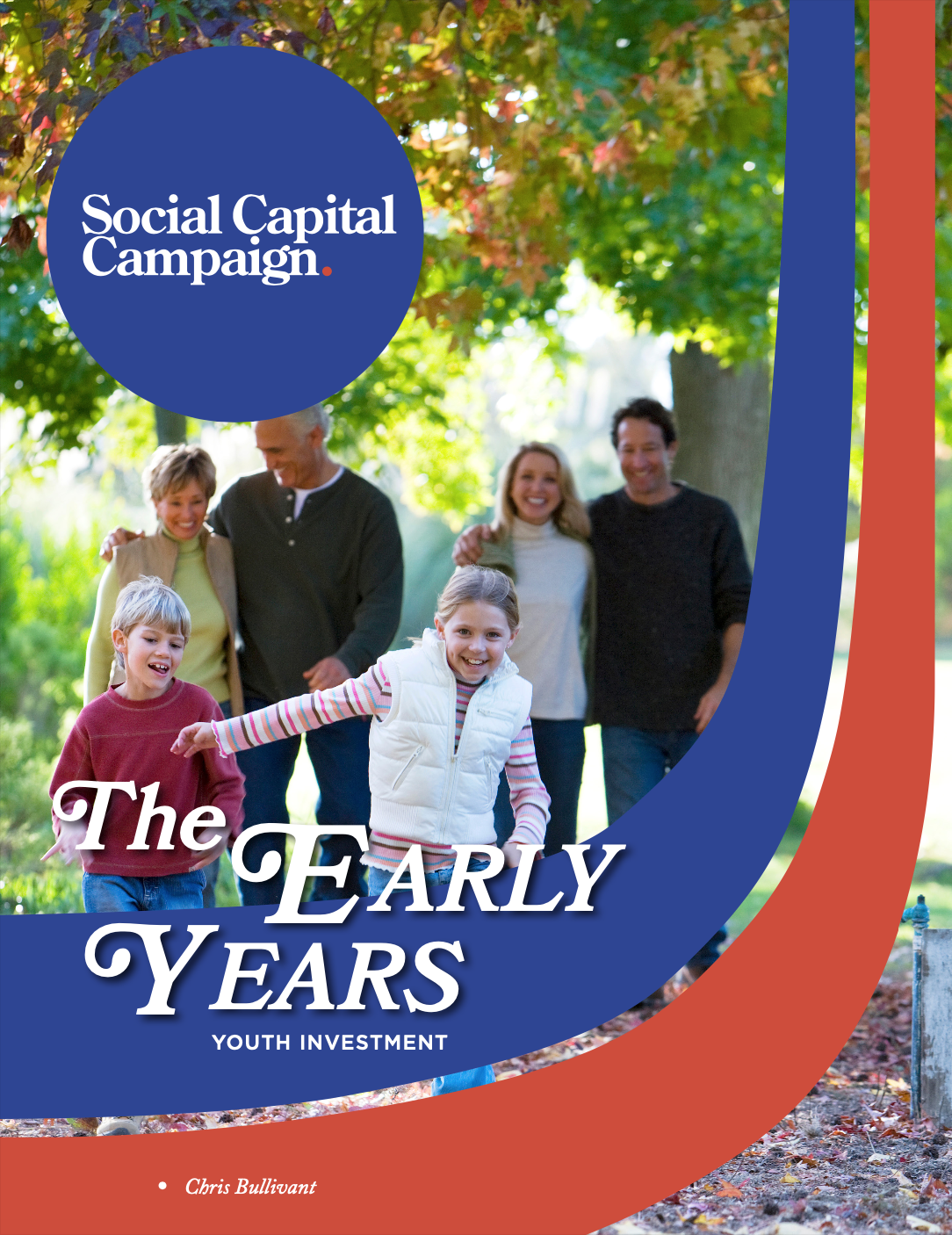“Rebuilding social capital starts with 0-3s”
The American dream has always been simple. Most people seek to get an education and a job, start a family, and enjoy their community. But increasingly, this dream is becoming attainable only for the wealthy and out of reach for the great bulk of Americans. Social capital is depleting: education, work, family, and community no longer sustain American society as they once did.
Social capital, which is the rich network of relationships that sustain individuals, can be measured by some key indicators, all of which are down: church attendance, friendships among adults, neighborliness, nonprofit giving, and volunteering. Meanwhile, trust in our national government, politicians, media, large corporations, national media, and each other is at historic lows.
Social capital has been studied by a variety of scholars across the political spectrum for decades now. But one area that deserves more focus from policymakers is the crucial formation we receive in the earliest years of life, ages zero to three. As attachment theory (which I will discuss in more detail later) suggests, the care and support we receive—or don’t receive—during these years play a vital role in our ability to attain and preserve social capital throughout our lives. The importance of these years is the reason I’ve worked with a group of think tank scholars in Washington, DC to create a resource for 2024 presidential candidates. These publications feature research from a variety of scholars, and offer an “off the shelf” policy platform that addresses ways to rebuild social capital, with a particular focus on our youngest years.
“The Early Years — Youth Investment.”

